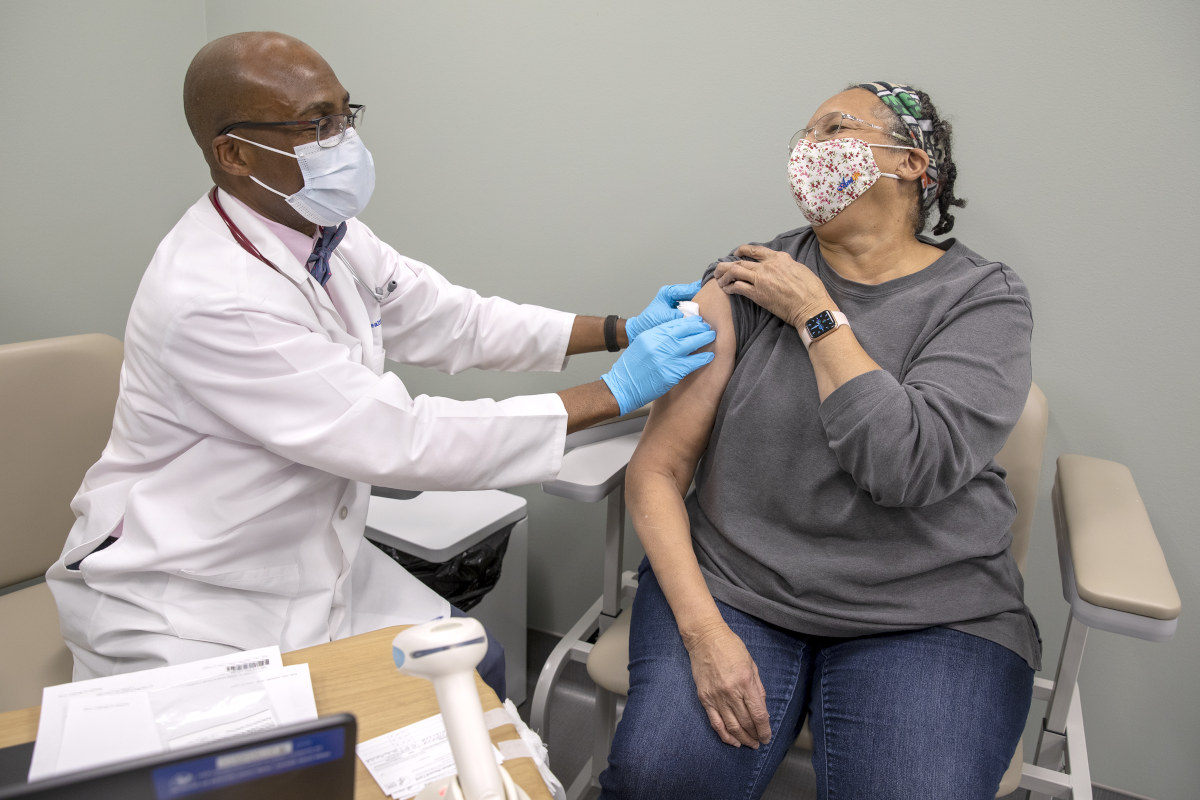Advancing diversity: Penn State Health invites employees to virtual events Feb. 26, March 4

Penn State Health presents two webinars on diversity and equity as it continues moving toward its goal of providing a fully inclusive and respectful place for people to work, get health care and learn.
“Research on Race- and Ethnicity-based Disparities” on Friday, Feb. 26, from noon to 1 p.m will feature a panel of Penn State Health researchers engaged in innovative research on disparities facing black communities and David Saunders of the Pennsylvania Department of Health. Sign up here.
A second webinar, “Insight into our Identities – Race Relations and Inclusivity” on Thursday, March 4, from noon to 1 p.m. is a follow-up discussion of last summer’s Penn State Health and College of Medicine town halls on race issues and will also include a discussion on the bias being experienced by Asians and Asian Americans as a result of COVID. Sign up here.
“The goal of the March 4 webinar is to do a pulse check on the organization’s progress and what steps we still need to take,” said Lynette Chappell-Williams, vice president and chief diversity officer, Penn State Health. “I urge staff to participate. We want to hear what changes you are seeing and what suggestions you have for moving forward.”
Steve Massini, Penn State Health CEO, is promoting diversity as one of the health system’s organizational goals, which was approved by the Penn State Health board of directors. The board also approved updating the health system’s mission and vision with a focus on culturally responsive health care.
Penn State Health renewed its emphasis on diversity following the shocking incidents in 2020 that put a national spotlight on race relations. In June, the Office for Diversity, Equity and Inclusion hosted nine town hall meetings, in addition to two meetings for the Penn State College of Medicine community.
More than 3,000 individuals participated and shared ideas on how the organization can create a more inclusive and respectful work environment. Their recommendations are being implemented with the goal of eradicating racism and creating allies against intolerance.
Chappell-Williams also highlighted other progress Penn State Health has made since last summer’s town halls:
- Advancing an introductory online educational program to educate employees on what constitutes unconscious bias and microaggressions and establish an expectation that employees become “upstanders” or people who intervene when these issues arise.
- Implementing a revised policy, “Complaints of Unlawful Discrimination or Harassment,” HR 86, that includes a zero tolerance for discrimination.
- Implementing “Patient Caregiver Preferences and Refusal of Care Based on Aspect of Diversity,” PSH ADM 120, a systemwide patient bias prevention policy established with an educational program on Compass and Lion on how to respond to patient bias. It includes the next step of developing a communication strategy for patients to help them understand expectations of mutual respect.
- Expanding diverse employee affinity groups to Berks and Lancaster counties and working with all affinity groups to present monthly cultural events.
- Implementing a revised policy, “Fair Employment Selection Practices,” HR 09, that requires racial and gender diversity in all interview pools for manager-level and above positions, as well as faculty/physician positions, and establishing a tool to increase the diversity of the Penn State Health workforce.
- Establishing a systemwide supplier inclusion policy through the health system’s supply chain that will include implementation of software that has the capacity to track diverse suppliers/vendors.
- Initiating a Penn State Health Inclusion Challenge for the entire organization in June of this year. The program was piloted with CEO team direct reports, hospital presidents and Penn State Health Milton S. Hershey Medical Center leaders in September 2020. The challenge itself is a month-long program designed to build habits to better understand social justice.
- Creating recommendations to establish a comprehensive, systemwide language interpreter program.
To learn more about any of the programs mentioned here or to submit questions or ideas, please email Divesity@pennstatehealth.psu.edu.
If you're having trouble accessing this content, or would like it in another format, please email the Penn State College of Medicine web department.
